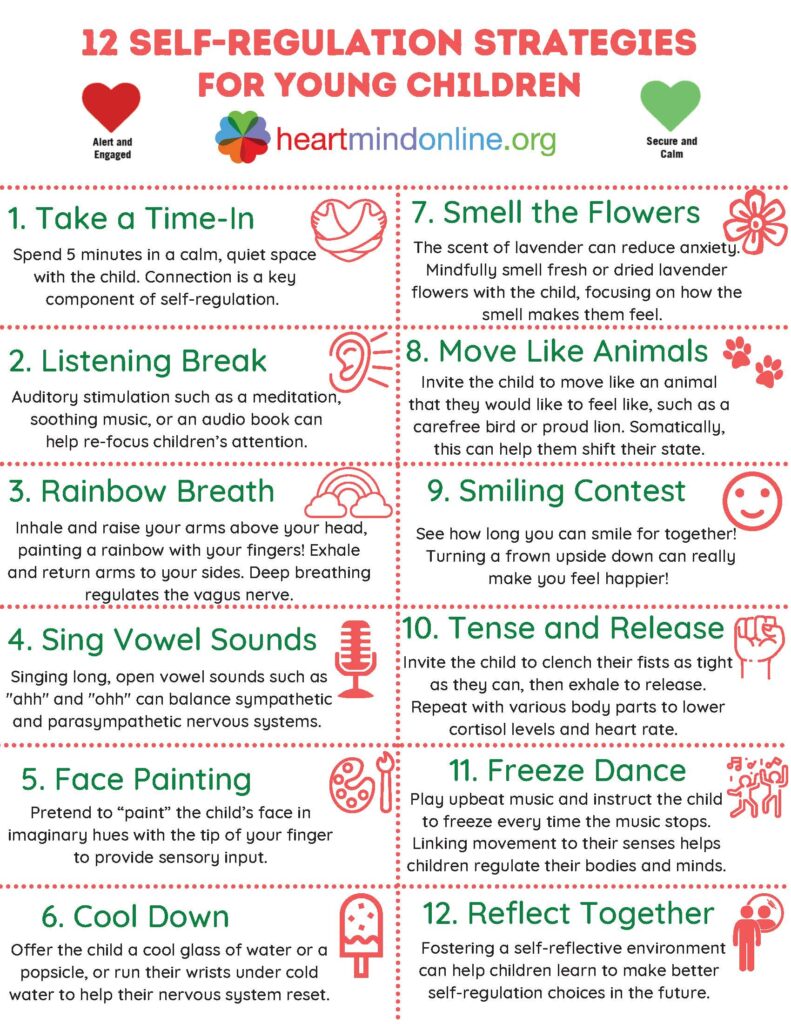Heart-Mind Online is for all those who are searching for evidenced-informed resources that educate the hearts of children. The collection of resources builds capacity in individuals and communities to support the Heart-Mind well-being of children, and promotes their positive social and emotional development. This website was developed by the Dalai Lama Center for Peace and Education.
We can help the young children in our lives manage challenging feelings by strengthening their red Alert & Engaged hearts. Feeling Alert & Engaged is linked to recognizing and naming emotions and self-regulation. While toddlers and pre-school aged children are learning to notice their feelings and exercise self-control, the adults in their lives are still essential co-regulators. During this developmental phase, children need their parents, teachers, and caregivers to respond appropriately to their emotional cues, help them manage disruptive behaviors, and model safe, healthy ways to navigate big feelings.

Adults can help children follow a 3-Step Recipe for Self-Regulation based on Dr. Daniel Siegel’s “Name it to tame it” process:
Step 1: Notice the feeling – Help the child tune into how their body is feeling. Ask questions like: What is going on in your body right now? How does your tummy feel? How does your throat feel? Do your muscles feel tight or relaxed? Is your heart beating quickly? Are your eyes making tears?
Step 2: Name the feeling – Invite the child to name how they are feeling. Affirm their answer (“yes, I can see from your tears that you’re feeling sad right now”) and extend upon it to build their emotional vocabulary and awareness (“I bet you might be feeling disappointed too, I know you really wanted to keep playing at the park").
Step 3: Respond to the feeling – This is when the dance of co-regulation really begins. Taking into account the child’s present state, temperament, and preferences, engage them in a brief activity to boost self-regulation. Tell the child that you are going to do something special together now to help their red Alert & Engaged heart feel better, such as one of the activities described below.


